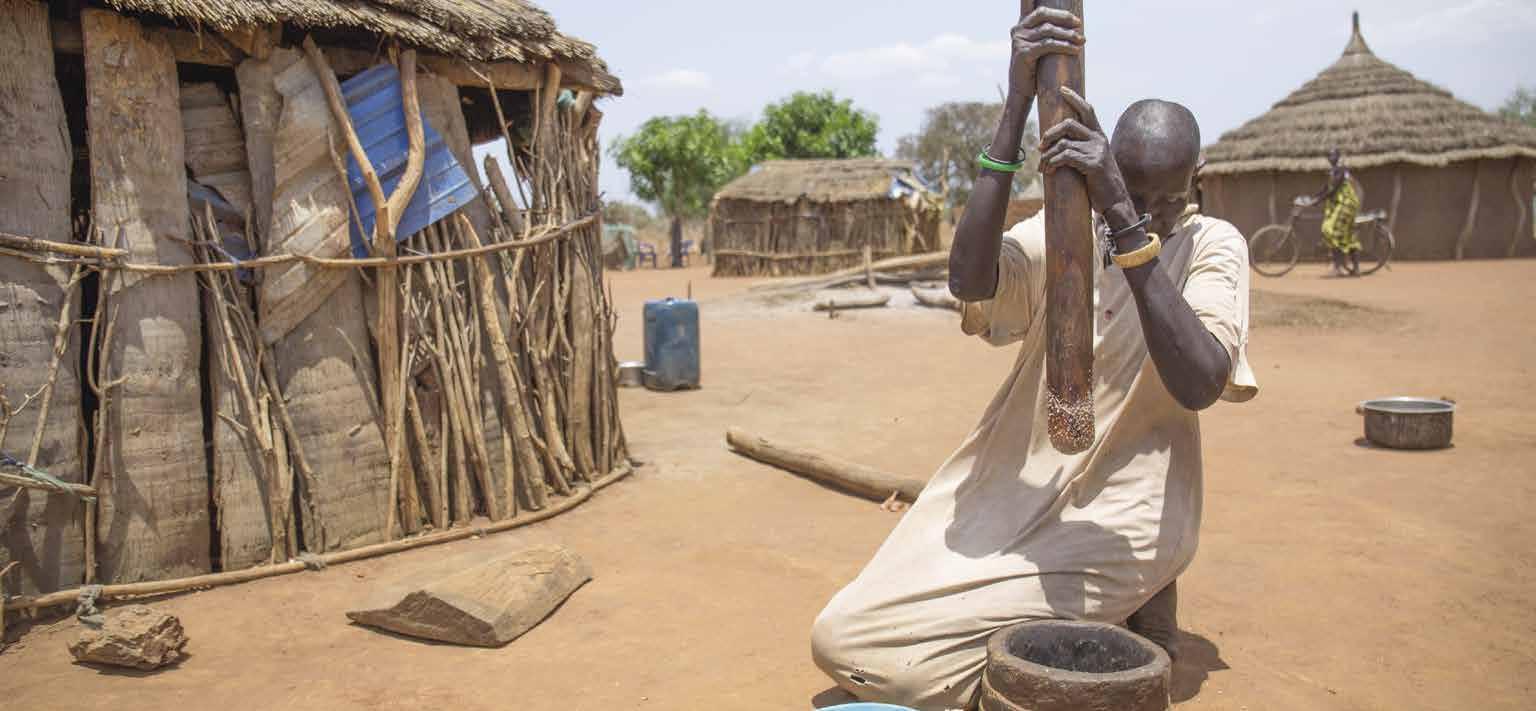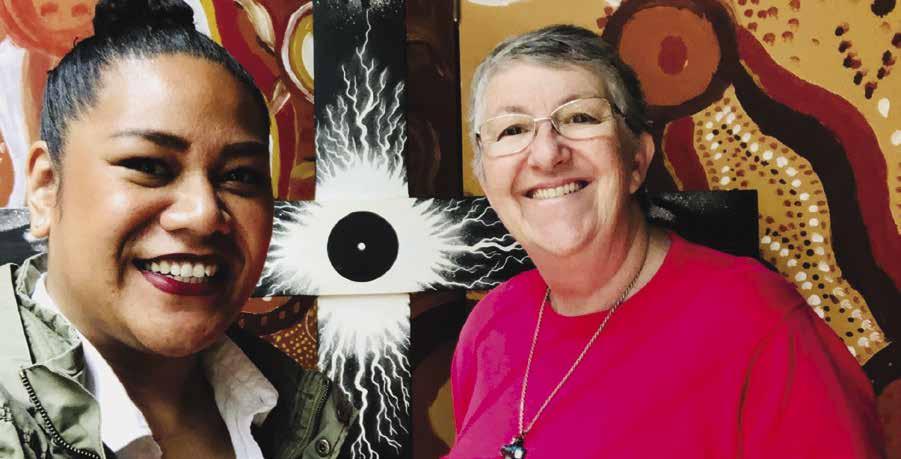
2 minute read
South Sudan
Building on community strengths and finding a new way forward after years of displacement
Advertisement

Daniel on his farm. Photo: Yohana Akol Wek, Hope Agency for Relief and Development. A woman pounds sorghum in order to prepare a meal for her family. Photo: CAFOD/Trocaire
After the referendum in 2011, thirty-six-year-old farmer Daniel returned from the north to resettle in his ancestral land in South Sudan.
After many years of displacement, returning to traditional ways of living on the land with his wife and five children has proved to be yet another challenge, due to the critical nationwide shortage of clean water and farming supplies. Daniel is one of more than 11 million people in South Sudan that depend on agriculture or fisheries for their livelihoods, whose way of life is threatened by armed conflict, flooding, protracted drought, mass displacement and food and water insecurity. These combined crises have left three-quarters of the population in need of humanitarian assistance.
In July 2019, Daniel joined the Asset Based Community Driven Development program, an initiative of Hope Agency for Relief and Development and Caritas Australia. First, he learned about what approaches he could use to generate income that built on the strengths of his community and region and then he started to view the land and streams around him in a different way. “When I attended the community meeting, I was excited when I realised that fishing and farming are strong assets that we can use to feed our families,” says Daniel. “With the fishing gear from the program, I can now earn over $7 USD a day from selling fish during the peak season. This is enough for me to set money aside for fishing line for the next season.”
Daniel soon invested in the supplies for beekeeping using the funds from selling fish. “I’ve put up three beehives,” he says. “And I’ve harvested 60 litres of honey in the past year, which has made me $150 USD.”
Now, Daniel is able to invest in his family’s future. He has bought chickens and goats to increase their food security and has even built a pit latrine, which improves his family’s quality of life and will prevent the spread of waterborne diseases such as diarrhoea.
Daniel has big plans for the seeds and ox ploughs he received through the program: “I am going to increase the size of my farm. If the rain is good, I will harvest over 50 kg of sorghum, 90 kg of sesame, and 45 kg of shelled groundnuts [peanuts].”
Program achievements
70 per cent of households that participated now have improved hygiene and sanitation standards in their homes, and rates of diarrhoea have reduced in children. Participating families in the program have improved their food security and now eat three balanced meals a day.










